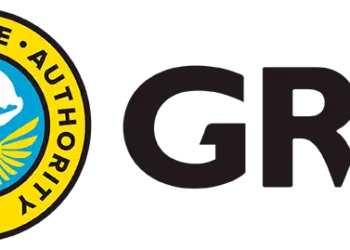
Barring any last-minute intervention, the Ghana Revenue Authority (GRA) will begin implementation of the Cargo Tracking Notes (CTN) policy on Monday, October 15, 2018, despite an impending lawsuit filed by an aggrieved freight forwarder.
A statement signed by the Commissioner General of the GRA, Emmanuel Kofi Nti directed importers to comply with the policy.
This means that all imports headed to Ghana without the CTN Number will not be offloaded at any of Ghana’s ports.
Freight forwarder, John Kwame Adu Jack who is in court over the issue wants the judge to declare the planned implementation of the CTN as illegal.
He also wants the court to place an injunction on the implementation of the system which is set to be valid from October 15, 2018.
But Mr. Christian Sottie, a Special Adviser to the Commissioner-General of the GRA, in an interview with citinews said he is not aware of any lawsuit barring the implementation of the policy.
“I’m not aware of any lawsuit. It has not been brought to my notice. The Commissioner-General was out of town; I was also out of town I’m yet to get to the office. If something has come out and it is critical, he will draw my attention to it, but so far I’ve not had any information from him,” he added in the interview.
The statement, however, indicated that importers whose imports exceed 36 Twenty-Foot Equivalent Units (TEUs) would be the one subject to the program. By this, importers whose imports fall below the stated volume are exempt.
“This is to serve notice that the implementation of the Cargo Tracking Note policy begins in earnest on Monday, 15th October 2018. From Monday, importers whose imports, from records, exceed thirty-six (36) Twenty-Foot Equivalent Units (TEUs) per year will be required to obtain a CTN number in the country of export. This means any importer who imports less than 36 TEUs per year is except for CTN compliance. Further, businesses that import more than 36 TEUs per year but can demonstrate that the nature of their imports and their turnovers make them small importers will also be exempt.”
The statement said the exempts are to ensure that “our small and medium scale importers, mostly petty traders, our market women and men, small distributors, and other small to medium businesses are free from the requirements of this intervention.
An earlier statement by the GRA on the CTN policy last week triggered fierce resistance from business associations.
But the GRA maintains the policy is necessary to secure the country’s revenue from imports.
Meanwhile, it says the government will closely monitor the implementation for future adjustments where necessary.
“Government will monitor closely the implementation of this important customs management tool with a view to learning the needed lessons and adjusting the scope and mechanics of the policy to achieve both the valuation and security enhancement objectives of the intervention,” GRA added in the statement.
Background
The freight forwarders embarked on a strike on August 27, 2018, to protest against the implementation of the Cargo Tracking Notes (CTN) system at the ports.
The action was necessitated by what the businesses described as government’s failure to heed concerns on the policy which impedes trade facilitation.
The business associations that participated in the action included; the Customs Brokers Association of Ghana, the Association of Customs House Agents Ghana, Freight Forwarders Association of Ghana and the Importers and Exporters Association of Ghana.
Strike triggered by unresolved concerns
The President of the Ghana Institute of Freight Forwarders, Kwabena Ofosu Appiah, had told Citi Business News their action is to get a possible suspension of the CTN policy.
He further explained that they were open to further consultations by the government to get their concerns addressed and possibly reduce the days for the strike.
“There are people in government who are listening, they are concerned. We want those people to know that they are not in the minority, we want those people to be assured that what they believe is wrong is wrong and we want other people who have not listened to our concerns to begin to gravitate towards us.”
The CTN requires importers to provide real-time information on all consignments to Ghana to a global monitoring platform.
The cost, which ranges between 100 and 200 dollars, is borne by the GRA.
–
Source: Citinewsroom.com













